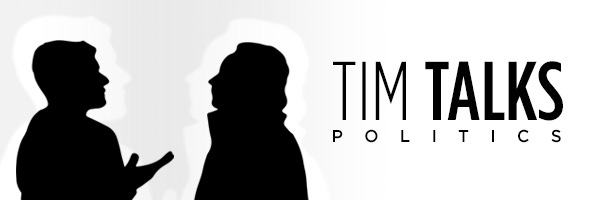Tim Talks Politics - The Weekly Brief, July 6, 2018

The Weekly Brief - July 6, 2018
Hip replacement in the Caymans: The healthcare future?
Among the many concerns that have arisen in American public policy discussions following the announced retirement of Justice Kennedy is the future of the Affordable Care Act. This puts healthcare policy back on the front burner of American politics.
But there’s a problem, according to American Enterprise Institute fellow Thomas Miller. The costs of healthcare are staying high and no one seems to know what to do about it.
One thought: Instead of consider policy solution, maybe we should be looking for models that work? That’s the approach Harvard Business Review took in a profile piece on Health City Cayman Islands. HCCI is a hospital that has achieved a remarkable record for patient outcomes since opening in 2014 while keeping costs low.
Tom “the handyman” Hardiman
That’s not his real nickname, I just thought it reminded me of Tim “the Toolman” Taylor of Home Improvement fame.
More importantly, Hardiman is the subject of an early profile tipping him as a potential Supreme Court justice to replace Kennedy. Hardiman was the runner up to Gorsuch in early 2017 and may be getting another look.
Democracy in America: Long on theory, short on practice
If you’re not a subscriber to Foreign Affairs, the content of the most recent issue has a dominant theme: democracy is in trouble. Across the world, democracies once thought safe and stable are foundering while the liberal democratic core (US, UK, France, Germany, Japan) seem to be in an existential funk. Divisions within Angela Merkel’s governing coalition in Germany are threatening to end Merkel's government, and a leftist populist just won the presidency in dangerously unstable Mexico. What the heck is going on?
It may be easy to conclude that we need to double down on valuing and promoting democracy at all costs (witness grassroots efforts to get Trump off the 2020 presidential ballot), but Georgetown law professor Joshua Geltzer argues that America is suffering from too much democracy, not too little.
In the midst of these discussions surrounding democracy, its helpful to take a pause and consider what we’re doing to pass along America’s democratic tradition. According to a new study from Brookings, civics courses in high school are heavy in content, but lacking in giving students experiential learning opportunities.
This means that high schoolers are doing a lot of talking about politics, but aren’t really engaged in the political process. They’re learning how to form and consume opinion information, but don’t have a concrete grasp on real-life implications of ideas.
International order remix
Parallel to concerns over the future of democracy are the concerns regarding the so called “international liberal order.”
It’s more of a aspirational title than a reality-based one, but it is helpful to indicate the general shape of the geopolitical landscape and interpreting it through a liberal democratic lens has largel7 been helpful, but that time is now gone according to Michael Mazarr at the RAND Corporation.
The emerging economic and geopolitical realities are already making themselves felt in unique regions of the world like the Arctic.
Military aid and proxy wars
Wars in Yemen and Syria have put America’s policies of supplying military aid to allies under a critical lens and rightfully so.
However, there is another element to the military aid debate that often goes unaddressed: The role of proxy wars in foreign policy. Lawfare did a two part series that I’ve wanted to share for awhile that seeks to shed some light on the policy reasons states and proxies are willing to engage in what can often be seen as a one-sided political deal. Interesting stuff.


